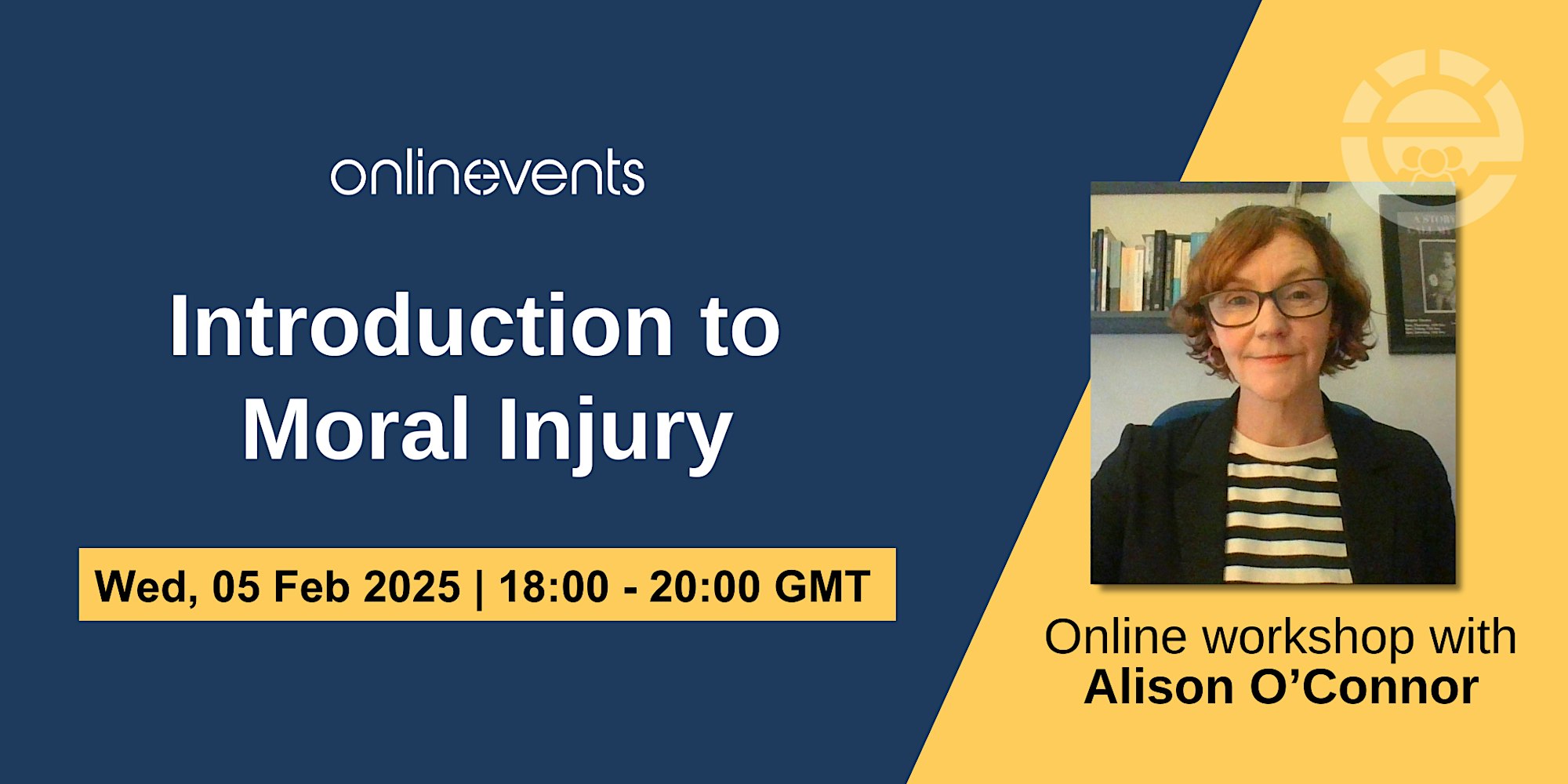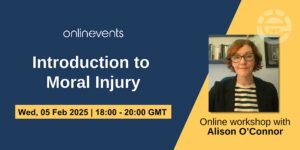About this event
Moral injury is the deep emotional and psychological distress caused by “perpetrating, failing to prevent, bearing witness to or learning about acts that transgress deeply held moral beliefs” (Litz et al, 2009), often exacerbated by a sense of betrayal by someone in authority. Understanding of moral injury evolved in the military context when soldiers were unable to reconcile acts committed with their personal moral codes (Shay, 1994). The global pandemic increased awareness of its relevance to healthcare staff and all who work on the human frontline. In a recent survey of doctors by the BMA, 78% said the terms moral injury or moral distress resonated with their experiences. Moral injury is being increasingly recognised across multiple professions, including clergy, social work, academia and mental health. Anecdotal examples include not being able to provide care that feels good enough, a sense of betrayal by those in authority through lack of accountability, staff shortages and pay freezes. This is a global issue beginning to present in counselling and psychotherapy contexts.
Learning Objective Participants Can Expect From This Event
- This session will Introduce and explore the concept of Moral Injury, drawing on research with military veterans and frontline staff in health and social care..
- The session will invite participants to reflect on emerging practice and innovation in this field, including a group-based retreat model being developed by Moral Injury Partnership.
- This session will consider what the concept of moral injury means for us as a helping profession, and how developing awareness might strengthen our ability to work holistically and compassionately with others, while looking after our own moral wellbeing.
Who is This Workshop Appropriate For?
- This will be of of interest to counsellors, therapists and supervisors and anyone working with frontline staff across services. The concept of moral injury is helpful to all who work with trauma and oppression, offering a holistic, compassionate lens through which to consider people’s experiences.
How May This Workshop Impact Your Practice?
- This workshop will deepen participants understanding of moral injury and the moral, social and political contexts in which we work and support others.
RECORDING
This workshop will be recorded and you can use the ticket function to pre-purchase the recording before the event. This will be useful for colleagues who are not able to attend the event live and also for those who attend the event live and want to watch it again.
ZOOM
This workshop will be hosted on the Zoom meeting platform where we will use our cameras and microphones to interact with each other as a group.
SELF-SELECT FEE
The self-select fee is a radical inclusion policy to open learning for all colleagues. The guide price for this event is £20.00, however, we appreciate that income varies greatly in different locations and circumstances. Please contribute what you can to help us maintain inclusive professional training.
___________________________
All the colleagues at ONLINEVENTS and the presenters we collaborate with are committed to working in a manner consistent with the BACP Ethical Framework, which can be accessed on the link below. When registering for this event you are agreeing to be present and interact in a manner that is consistent with this Framework.
Alison O’Connor

Alison is a trainer, therapist and supervisor with 25 years experience of groupwork, therapy and applied theatre. She has been privileged to work in prisons, Romanian orphanages, in substance misuse, with older adults, military veterans and survivors of complex trauma. She worked for several years as Lecturer and Senior Lecturer in Counselling and Psychotherapy at University of South Wales. Alison’s Churchill Fellowship, Transforming Trauma: Moral Injury and the Arts with military veterans, families and communities, opened the door to a creative, compassionate approach to wellbeing which links the personal, the political and the spiritual. She established Moral Injury Partnership with Sophie Redlin and Simon Edwards, two other Churchill fellows. They are delivering a retreat-based programme of restorative support for frontline professionals impacted by moral injury and burnout, which is being evaluated in partnership with the International Centre for Moral Injury at Durham University.
Alison is committed to enhancing practitioner wellbeing by co-creating restorative, reflective support networks and experiences that allow people in the helping professions to be well in the work they do. Teachers, counsellors, nurses, doctors, care workers, police, paramedics, prison staff, all who work at the human frontline. The work hurts at times. Support is vital.
Website | www.alisonoconnor.co.uk
LinkedIn | Alison O’Connor



